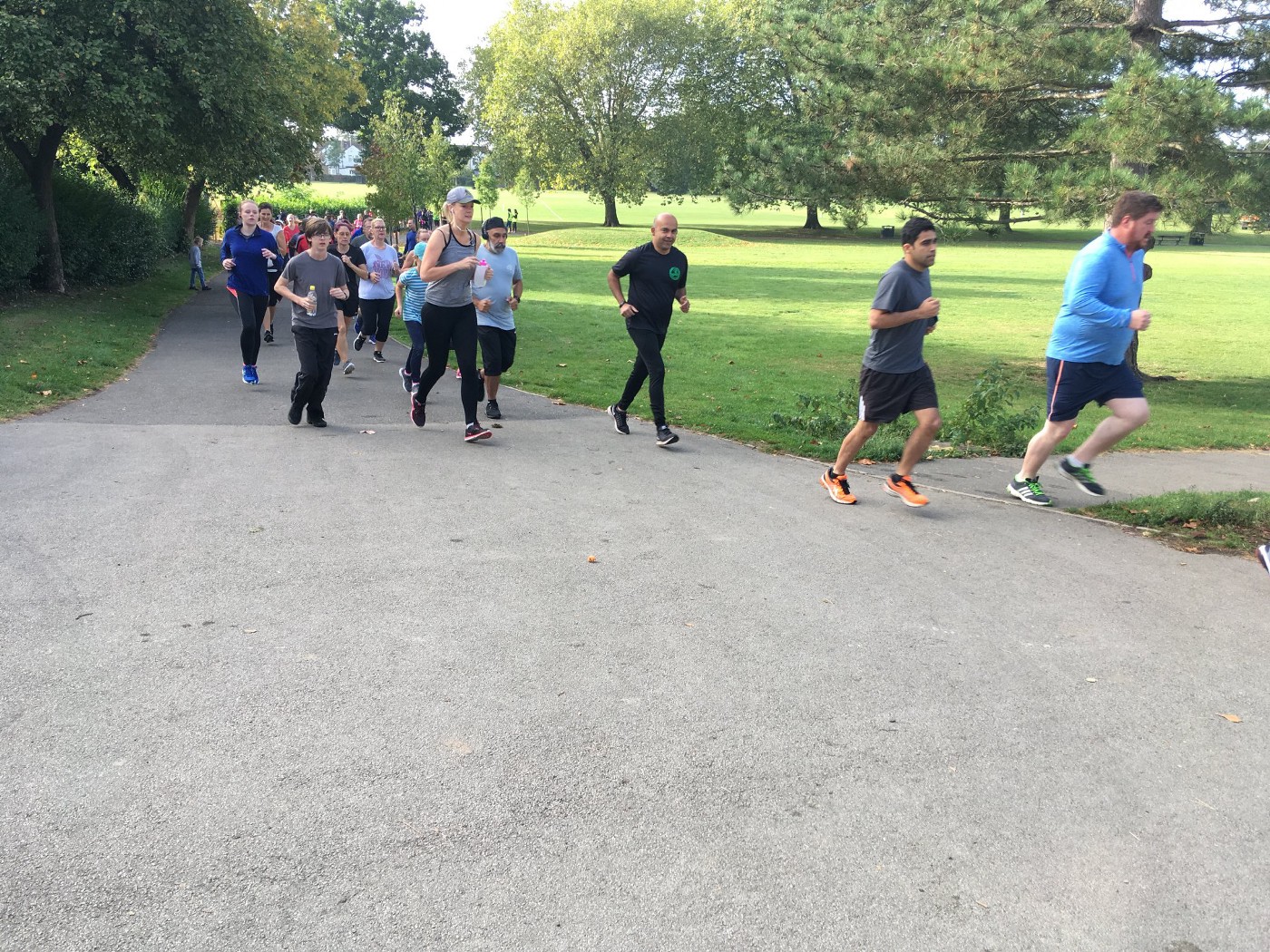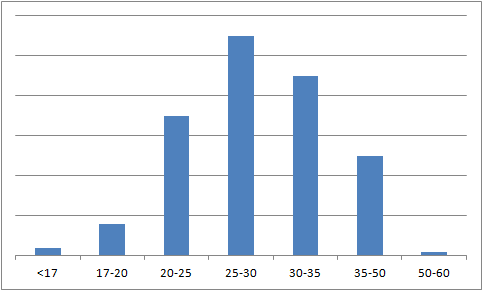An analysis of the run times and how it helps.

How much time does an average runner need to run a 5K?
45 mins? 1 hour? Or more?
Before I ran my first 5K run, I didn?t know. As a beginner, I always thought it would take a long time.
Over the past five years, I have developed some sense of the time required for running a 5K, how much time average runners take, and how knowing this helps.
This might vary slightly depending on your age, gender, personal health condition, and different factors, but this perspective may help you come to a sense in your case.
When I ran my first 5K, I took 32 mins 20 secs. I was a beginner. Most of the beginners take about 30?35 mins or more. I started taking part in weekly 5K runs in London and analyzed the results after each run. Here?s what I found.
The best I saw (2 to 3 people) would run 5K in about 17 mins. The next best, about 8?10 people, would run in about 18 to 20 mins. Most of the next best, about 40?50 people finishing in 20 to 25 mins, Most of the others run a 5K between 25 to 35 mins, and a few would take over 35 mins and even go up to 50 mins.
Refer to the below chart:
5K run time range and %age of people in each range

As you can see, most of the average runners run 5K in a 25 to 35 mins range.
- Less than 17 mins: These are exceptional runners. Some of the best athletes and regular runners can run 5K in less than 17 mins. The world record is about 12:37 and you can imagine how hard that would be to improve each second. I have seen no one running a 5k in less than 17 mins in any events I took part in so far, so for me, less than 17 mins is too good.
- Between 17 to 20 mins: Although not exceptional, people who finish in this time range are also superb. I could see a few such runners in person in many events I took part in. It was fun to see these guys overtaking me in their 3rd lap while I was still starting off the second lap:). They just run so smoothly and they just make it look so easy.
- Between 20 to 25 mins: This is good timing too,somethingIstruggledalottoachieve. This also requires consistent effort, and regular runners improve their time from 25 minutes to about 20 minutes. There will be fewer people when we approach 20 mins 5K run.
- Between 25 to 30 mins: We approach average runners in this range, about 30 mins. With regular practice and effort, we can improve to about 25 mins. When I practiced more and started running regularly, I could finish in less than 30 mins, otherwise, I would always take longer than 30 mins.
- Between 30 to 35 mins: When I started off, I was a non-runner and my first 5K Run time was 32:20 as mentioned above. I was 75th in a set of 109 people who ran that day, so over 60% of people ran faster than me. I was not that fit and many who were beginners like me took 30?35 minutes.
- Longer than 35 mins: Most beginners can expect to take this much time. I have seen some who were not that fit, or beginners or some were older than 50 were taking longer than 35 mins. Some took about 40 mins, and some even took up to 50 mins. There is nothing wrong with taking a long time, with regular practice and effort, we can improve run times.
It is much harder to achieve less than 17 mins, and even less than 20 mins. Some of the best athletes do that.
I am in the 30 mins range where most average runners are.
I improved my time from 32:20 to PB of 24:30 and it was a lengthy journey. You can refer to the post I had written on it at the endofthisarticle.
It helps much to know this so we can work towards improving into the next range and have realistic expectations to achieve.
Know your time for each KM / Mile
Not only the time range for a 5K, but it also helps to have a sense of how much time you usually take for running a KM or a mile.
I always found this useful to do quick mental accounting to calculate the time needed to run without over complicating it.
For me, below are the timings I carry in my head.
- 1KM takes about 6-7 mins
- 2KM about 15 mins
- 3KM about 20 mins
- 4KM about 25 mins
- 5KM about 30 mins
You can have a chart for yourself, whatever helps.
How to apply this and how it helps
I will give you three examples of how this helps me.
- Motivation: There are days when I would not feel like going for a run. I may be feeling lazy or I lack motivation. I would just start with 1 KM because I know it hardly takes 6?7 mins, so it helps me to start. More often than not, once I start, I will end up running more.
- Decision making: It helps me to decide whether to go for a run. I saw a virtual event, a 100-day challenge starting next month for running a 2K every day. I immediately sensed this will be good because more than the distance, it will demand consistency and discipline. Whether to commit to such a challenge? All I had to ask myself was whether I can spend 15 mins every day because I know for a 2K run, I take about 15 mins. So, the answer was: ?Of course, I can!?. I registered for the challenge.
- Value of time: In the initial days, even when I was running for 2KM distance, which was only about 15 mins, it was so hard. But the satisfaction I would get after I run those 2KM was pervasive throughout the day. Each minute in those runs was hard, I had to push when I was about to quit. Sweat would come out. Constant talking within my mind. If we can achieve so much in that brief period of 15 mins, you tend not to waste time on unnecessary distractions. You value your time much more.
You can extend this idea to a 10K (1 hour), half marathon (2?2.5 hours), or full marathon (4?5 hours). I am talking about the average runner here, but the point is, it helps in your planning and commitment of your time ? for the event and practice.
The bottom line
So many times we spend time on not so fulfilling activities without even realizing it.
Maybe you watch TV or spend time on your smartphone checking social media feeds or on Netflix binge???sometimes for an hour or two or more.
If you think about it, a 5K run requires 30 mins of your time. Just 30 mins.
Can you imagine how much positivity you will gain with those 30 mins?
If only we see in that perspective, running is well worth the time you spend. Not only your health will improve, but it will improve your motivation to do well in other areas of life too.
Refer to the below articles which can be useful too.
How I Went From Being a Non-Runner to Running My First 5K
With determination and practice, even a non-runner can run a 5K.
medium.com
How to Not Stop Running When You Feel Like Stopping
Some tips to not quit when you feel like you can?t run anymore.
medium.com
How to Improve 5K Run Time
How I improved my 5K Run time from 32:20 to 24:30
medium.com